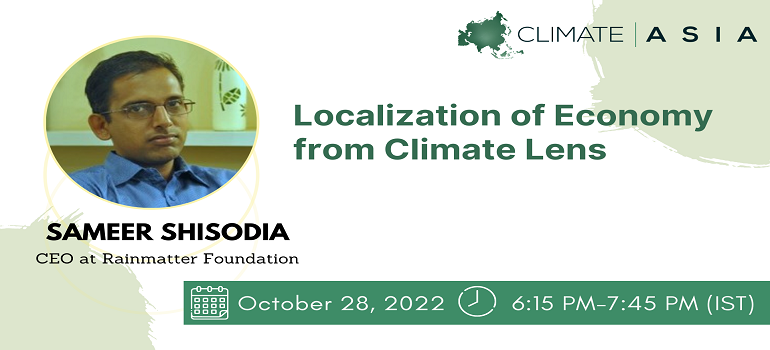In a globalized world, the basket of needs are met from afar. But in current times, economic loss is becoming unavoidable due to the rising threats from climate change, including infrastructure damage due to calamities, the rising cost of transportation, and geographical shifts in various countries.
The aim is to throw light on conversations around central themes of economics from the lens of climate change, degrowth in consumerism, aspirations, India’s scale view, and much more.
A masterclass on the Localization of Economy from Climate Lens is happening on October 28, 2022, from 06:15 PM-07:45 PM (IST), highlighting the intersection of climate change with various economic indicators. The speaker for the session would be Sameer Shisodia, CEO of Rainmatter Foundation.
You can join the session today by clicking here –
The idea is to help reach a larger audience about some pertinent issues around climate change and its various intersectionality.
Since climate change poses a significant threat to the local economies, it is imperative to act upon it. Further, on this theme, Sameer mentioned in his article How Gandhi’s ideas can lead us out of the climate crisis that “the subsequent breaking of the Salt Act symbolized the idea of Swaraj and autonomy not just politically but economically as well. These ideas can easily create the foundation of a localized, self-reliant economy, which holds much promise as a possible response to the gravest threat that stares us in the face: the climate crisis”.
The speaker also elaborates that “the prevalent economic reality around us is that the incentives have become so ingrained that we fail to take notice of the footprint we create. This footprint problem has become invisible because of several factors, and the local basket of needs ensures that the overall cluster economy stays negative in most cases. The ability of a cluster to meet its fundamental needs while utilizing and expanding its ecological richness, skills, and knowledge is wise.”


